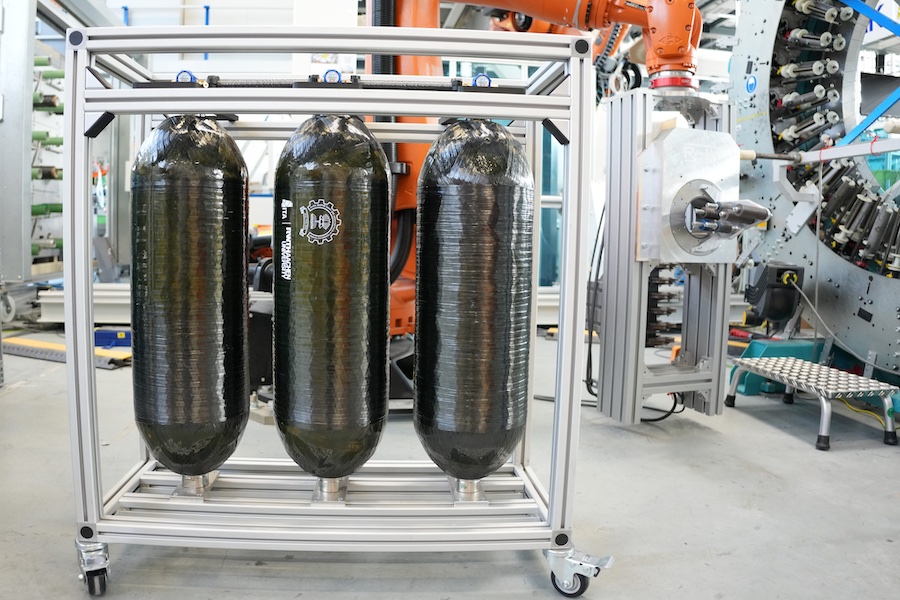#Europe
Crisis-proofing the Single Market: equipping Europe with a robust toolbox to preserve free movement and availability of relevant goods and services
While the Single Market has proven to be our best asset in crisis management, the COVID-19 pandemic has highlighted structural shortcomings hampering the EU's ability to effectively respond to emergency situations in a coordinated manner. Unilateral measures caused fragmentation, worsening the crisis and affecting particularly SMEs.
Executive-Vice President for a Europe Fit for the Digital Age, Margrethe Vestager, said: ”The COVID-19 crisis made it clear: we must make our Single Market operational at all times, including in times of crisis. We must make it stronger. We need new tools that allow us to react fast and collectively. So that whenever we face a new crisis, we can ensure that our Single Market remains open and that goods of vital importance remain available to protect European people. The new Single Market Emergency Instrument makes it possible.”
Commissioner for the Internal Market, Thierry Breton, said: “In the sequence of crises of the past few years, we worked hard to preserve a smoothly functioning Single Market, keep our borders and supply chains open and ensure the availability of products and services that our citizens needed. But we must be better prepared to anticipate and respond to the next crisis. Rather than relying on ad hoc improvised actions, the Single Market Emergency Instrument will provide a structural answer to preserve the free movement of goods, people and services in adverse times. The SMEI will ensure better coordination with Member States, help pre-empt and limit the impact of a potential crisis on our industry and economy, and equip Europe with tools that our global partners have and that we lack.”
The Single Market Emergency Instrument complements other EU legislative measures for crisis management like the Union Civil Protection Mechanism, as well as EU rules for specific sectors, supply chains or products like health, semiconductors or food security, which already foresee targeted crisis response measures. It establishes a well-balanced crisis management framework to identify different threats to the Single Market and ensure its smooth functioning by:
Creating a crisis governance architecture for the Single Market: A new mechanism to monitor the Single Market, identify different levels of risk and coordinate an appropriate response comprising several stages - contingency, vigilance and emergency modes. First, the contingency planning framework enables the Commission and Member States to set up a coordination and communication network to increase preparedness. Subsequently, when a threat to the Single Market has been identified, the Commission can activate the vigilance mode. Finally, in case of a crisis with a wide-ranging impact on the Single Market, the Council can activate the emergency mode. An advisory group, comprised of the Commission and Member States, will be established to assess a given situation and recommend the most suitable response measures. It will play an essential role throughout the whole process.
Proposing new actions to address threats to the Single Market: In vigilance mode, the Member States in cooperation with the Commission would focus on monitoring supply chains of identified, strategically important goods and services as well as on building up strategic reserves in these areas. When the emergency mode has been activated, free movement in the Single Market will be upheld through a blacklist of prohibited restrictions and, more generally, through reinforced and rapid scrutiny of unilateral restrictions. The Commission may also recommend Member States to ensure the availability of crisis-relevant goods by facilitating the expansion or repurposing of production lines or accelerating permitting. Finally, it may also recommend Member States to distribute the strategic reserves built during the vigilance phase in a targeted manner. New rules will also apply to facilitate public procurement of relevant goods and services by the Commission on behalf of the Member States both in vigilance and in emergency modes.
Allowing last-resort measures in an emergency: Under extraordinary circumstances, and only when the emergency mode has already been activated, the Commission may also make use of tools which will require a separate activation step. In this case, the Commission may issue targeted information requests to economic operators, which can be made binding. It may also ask them to accept priority rated orders for crisis-relevant products, in response to which firms must either comply or explain the grave reasons justifying refusal. Furthermore, the accelerated placing on the market of certain products through quicker testing and accreditation, including through conformity assessment, will ensure their availability during emergencies. Rules permitting such derogations are laid down in separate proposals for a Regulation and a Directive amending a number of product-specific regulatory regimes, which accompany the SMEI Regulation.
Next Steps
The proposals will now be discussed by the European Parliament and Council of the European Union. After adoption by the co-legislators, the Regulations will enter into force on the twentieth day following their publication in the Official Journal of the European Union.
Background
For almost 30 years, the Single Market has been the EU's most important asset, offering certainty, scale and a global springboard for our companies, and wide availability of quality products and services for consumers. However, in recent crises, and particularly in the early days of the COVID-19 pandemic, businesses and citizens suffered from entry restrictions, supply disruptions and a lack of predictability of rules which fragmented the Single Market. Intra-EU export restrictions and travel limitations, adopted in response to the pandemic, but in many cases poorly designed and justified for that purpose, disrupted the free circulation of goods, services and persons, causing economic costs, delays and hampering the overall crisis response.
The SMEI package presented today follows calls by the European Council, which in its Council Conclusions of 1-2 October 2020 stated that the EU should draw the lessons from the COVID-19 pandemic and address remaining fragmentation, barriers and weaknesses of the Single Market in facing emergency situations. In response, the Commission announced in its Updated Industrial Strategy Communication of May 2021 that it would present a dedicated instrument to ensure the freedom of movement of goods, services and persons as well as greater transparency and coordination in times of crisis. The European Parliament welcomed the Commission's plan to present a Single Market Emergency Instrument and called on the Commission to develop it as a legally binding structural tool to ensure the free movement of persons, goods and services in case of future crises. Before presenting the proposal, the Commission undertook extensive consultations, including by publishing a call for evidence and a public consultation as well as a Member States' survey, in addition to organising a large stakeholder workshop and numerous more targeted stakeholder consultations.
















